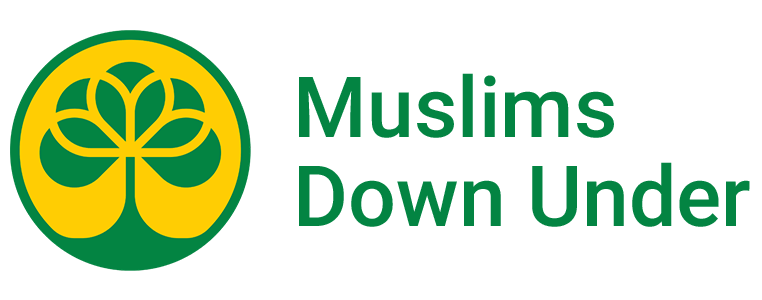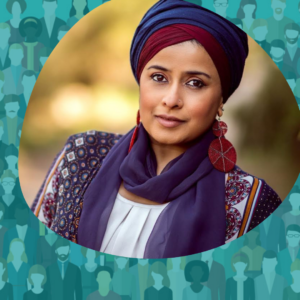Muslims Down Under had the pleasure of interviewing Dr Susan Carland, who is a lecturer and a researcher at Monash University, specialising in the areas of gender studies, politics, and sociology with a special focus on Muslim women and Muslims in Australia. Dr Carland is also listed as one of the 500 most influential Muslims in the world and is recognised as a Muslim leader of tomorrow by the UN Alliance of Civilizations.
This is a transcript from portions of this interview. Click below to listen to the full interview or visit our podcast page.
Host: As a Muslim woman, you’ve written and spoken a lot about your experiences of sexism and prejudice, and the stereotyping that you’ve experienced, but what has kept you grounded in your faith?
Dr Susan Carland:
I think for me, I’ve been Muslim for a long time; I’ve been Muslim longer than I haven’t been Muslim in my life! So, I’ve been Muslim for quite a while, decades, in fact, and I think for me, my faith is something that I have to constantly refresh. I need to see it as a living thing. So, it’s something that I’m constantly always re-engaging with, and re-exploring and re-evaluating… And one of the things that I really like about Islam is that, it’s kind of religiously acknowledged that our faith will go up and down, sort of wax and wane like the moon, and that’s not necessarily seen as a bad thing. It’s seen as sort of the manifestation of a faith that is alive and like any living thing, it will grow and retreat and go through different stages and in those periods that might seem like the most difficult for faith or an area where perhaps it feels a bit dry… I don’t think God has a problem with us asking questions, or struggling with things. And, being Muslim for however many years, I feel very confident that we can press on our faith pretty hard, and it will stand up. And we shouldn’t be scared to do that.
Host: You have many different roles, your role as a mother, as a professional career woman, as a role model for Muslim women in Australia. What actually keeps you going?
Dr Susan Carland:
I think one of the things for me is realising (and this is going to sound much more negative than I made it to, so just stick with this answer) how meaningless all of that is. And what I mean by that is, that one day, I will not have this job anymore, for whatever reason, God forbid I get fired, or I retire or whatever it is, one day, I will not be an academic anymore, or, one day, no one will want me on their podcast, they will not know me… So I relatively early, really committed to knowing what my self is, my value is and who I am. Particularly, that my identity is not pegged to any of the roles that I have, even the ones that are the most important to me, even being a wife and mother. And that doesn’t mean I don’t care about them, or that they’re not deeply important to me, they are but what I mean is, if I ask you, honestly, from a purely religious point of view, the only identity I have that can’t be taken away from me… is in my role as a Muslim, it’s as a servant to God.
Host: I’m sure you, like many others have noticed that within the Muslim community, there is a sense of identity crisis taking place. Because we have this narrative of Islamophobia that is so pervasive, and it’s kind of in a subconscious way affecting people where Muslims sometimes feel apologetic about their identity. And we end up defining ourselves in terms of the anti-Muslim ideas around us trying to prove that we don’t conform to these negative stereotypes. Like, I’m a Muslim, but I’m also a law-abiding citizen, or I’m a Muslim woman, but I’m not oppressed.
So, our humanity is questioned, and we end up feeling like we need to prove that the mass murders or injustices, or oppression, that unfortunately takes place under the name of Islam, isn’t actually in the name of Islam. And sometimes you see Muslims trying to prove that they’re moderate Muslims as opposed to extremist Muslims. So how do you navigate this? How do you maintain that positive Muslim narrative of your own?
Dr Susan Carland:
When you’re constantly defining your identity by a negative, what I’m not, I am not this, I am not that… you can’t always be existing as something that you’re not. But also, what that means is, you only exist in reference to something else… If I’m existing in a framework of something, a reference that someone else has given me, or in opposition to something, you think I’m this, but in fact, I’m that – it’s a permanently derivative existence. And so, I guess for me, I was just like, what do I think I am?…
It’s difficult, not just being Muslim in Australian society, and that’s hard – being publicly Muslim. If people know that you’re Muslim, and if your religion is something you take seriously, it can be difficult. But also, I think just being religious, like having a religious commitment in Australian society – we’re not a very religious society. It’s viewed as something, at least with skepticism, often it can be viewed with quite a lot of sneering suspicion, like no intelligent person would ever be religious!
So, I think I just try to have a strong sense of who I am… Because we’re wanting to be authentic, we want to be exactly who we are without compromising, but we’re worried about how that will be received. And I think our suspicions aren’t always incorrect. We know that people do feel weird about Muslims, particularly religious Muslims, they do feel weird about religious people in general. And I guess we want to reassure them that we’re nothing to worry about, and we’re good people.
But sometimes I think you can bend over so far to reassure them, that you can end up not really having any belief for really standing for anything at all. And what I have noticed from others, if I think about other people I know, again, Muslim, or non-Muslim, who are just proudly religious people, is that people end up respecting them, they know this is who you are, and this is what you believe, and the non-Muslims or the non-religious people around them, respect them for that. But I think also, they only respect people for that if they are good people, if you’re just a religious person, and your religion makes you a jerk, no one respects that… When we’re being good people, this isn’t about trying to suck up to non-Muslims. This is about us doing what our religion tells us to do. This is about doing what Allah has told us to do. So, I think we need to, keep that in mind that us being good, upright people, isn’t some sort of, sell out to a majority non-Muslim audience. This is actually an adherence to one of our core values. And that should be why we do it.
Host: Talking specifically to the Muslim community, but just generally for anyone listening, if they’re struggling with their Muslim identity, what sort of advice would you give them?
Dr Susan Carland:
The first thing I would say is that don’t necessarily worry about that, in that don’t be like, Oh, my gosh, why am I such a bad Muslim? They shouldn’t be thinking if I were a good Muslim, I would have high Iman or faith all the time. It is okay to struggle or have doubts or have questions religiously. What that shows is that your faith isn’t dead… First of all, feel okay about that.
And then, what I would say is that I think often, certainly not always, it really depends on why you’re struggling with your faith. I think it’s because you’re struggling with a law or interpretation of a law practice and you’re really struggling to make sense of that and understand for yourself. If that’s the issue, I would say just keep digging, keep looking and if you read something that doesn’t make sense to you intellectually and spiritually, if your heart tells you this just doesn’t feel right, keep looking. Our scholarly tradition is an ocean, don’t feel that if you read one book and it doesn’t seem enough to you, that you just have to switch off your mind and accept it. God tells us again and again in the Quran to use your reason. He wants us to engage intellectually. So, don’t feel you have to turn off your intellect to use it for your faith…
And if your faith is something where you just feel like you are distant from God, what I would say is that often I think our feelings of being distant from God can be because we’re tied up in feelings of guilt, or uncertainty or not feeling enough. And I think those feelings often come just from not knowing well enough who God is. If we really read the Quran and read what God or Allah says about Himself in the Quran, we see that He is a God who never once says, you’ve committed too many sins, that’s it, I’m not listening anymore. He always says, I want to forgive, I want to forgive, ask forgiveness of me, and I will answer you. So don’t let guilt get in the way of your relationship with God. Because that’s not who Allah is. Allah is the one who says, I will always forgive you, if you ask me. And He’s always a God, who is trying to reach out and connect with us. So, if we’re feeling distant from God, who is it that moved away? Is it us? Or is it Allah? It’s probably us….
I think having good Muslim friends also really makes a huge difference. Try to find Muslims that you can connect with … it makes a huge difference, because it can be lonely, isolating, just being a Muslim in the world. So, I think having people that you love and respect around you will make a big difference. Also, make friends with really good normal people, people who will just appreciate you and like you and reassure you that not everyone in Australia are the Pauline Hanson’s of the country who don’t like us. Most Australians probably do want to get to know you… and are fine with you being here and fine with you wearing what you want and worshipping the way you want.
Host: Basically, our message is to try and show that practicing your faith is still something that’s achievable in this day and age. It’s simply by living a balanced life, which is what Islam promotes and advocates and emphasises. Islam doesn’t need to be balanced with your identity, your life, because it is a way of life, and it should become your identity. It essentially becomes one and the same. So, how do you apply your faith to your everyday life?
Dr Susan Carland:
I think in terms of our religion having a role today, our religion has a huge amount to offer.
I think Islam has something to offer and something to say … in terms of how my religion sort of infuses aspects of my life, one of the things I love the most about Islam is that everything has the potential to be an act of worship if we have the right intention. So, even the most mundane of acts: me cleaning the kitchen, me driving my car somewhere unremarkable – if I do it with the right intention, that I’m doing this to serve my family, I’m doing this to help a friend, but also with a consciousness of God, then that mundane act is turned into something sacred, everything has the potential to be a moment to connect with my Creator… And particularly as a woman in hijab, it means that whenever I’m out in society, people know that I’m Muslim… My faith says, Be the best person you can be, try to abide by everything you do with excellence, be good to the people around you, don’t cause harm to the people around you. And so, trying to live that, is just a manifestation of what the faith I chose asks me to do.



